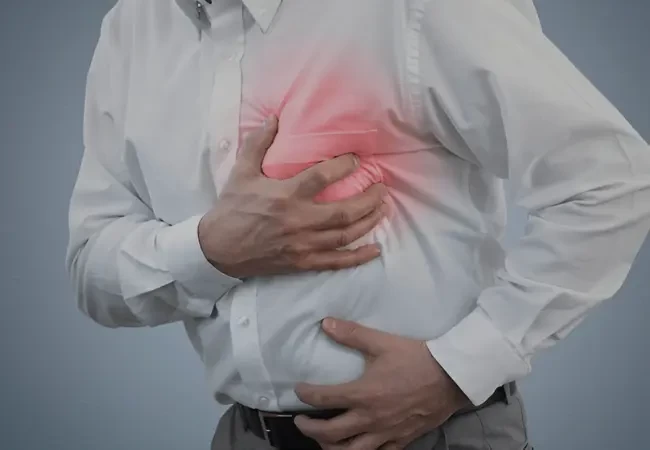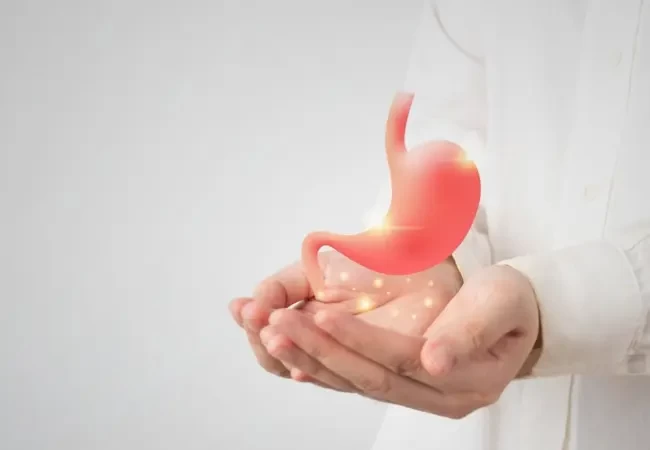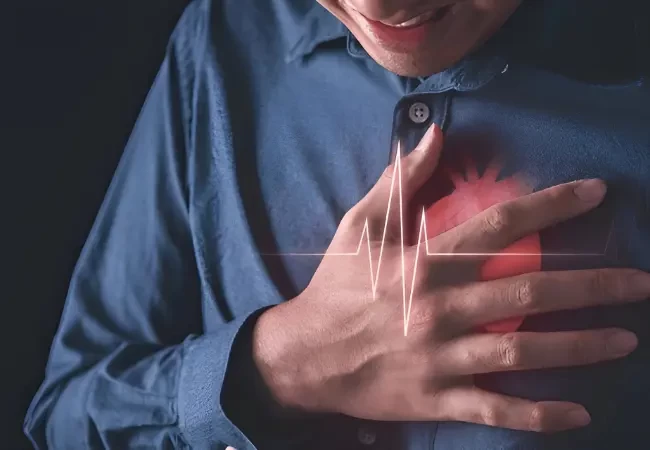 Medically reviewed by: Dr. Neenu Kurian, Interventional Cardiologist - Written by Jasni Salim - Updated on 30/01/2025
Medically reviewed by: Dr. Neenu Kurian, Interventional Cardiologist - Written by Jasni Salim - Updated on 30/01/2025Chest pain occurs frequently and varies from light discomfort to extreme agony. Understanding its causes is crucial, and it's important to detect signs of a more serious condition like heart problems. Both men and women experience chest pain, but the symptoms can differ slightly. This article will delve into chest pain symptoms and potential reasons for them, accompanied by accessible treatments.
The term 'chest pain' encompasses discomfort or distress located in the chest. Its intensity and characteristics can differ from a sharp pain to a more intense pressure or ache. Chest pain frequently links to cardiovascular issues but can result from problems in the lungs, muscles, oesophagus, or ribs too.
Chest pain often points to serious ailments that call for prompt care. Symptoms can arise from less serious conditions like stomach discomfort or muscular tension. Receiving an accurate diagnosis is crucial for identifying the root cause and suitable therapy.
Chest pain symptoms can vary depending on the underlying cause. Sometimes, the pain is sharp and localized, while in other cases, it may feel more like a dull ache. Common symptoms include:
There are many potential causes of chest pain, ranging from minor issues to life-threatening conditions. Here are some common causes, including heart-related problems, respiratory issues, digestive disorders, and musculoskeletal injuries.
Chest pain in women can sometimes present differently than in men, particularly when it comes to heart-related issues. While men may experience intense chest pain during a heart attack, women often report more subtle symptoms, such as:
The treatment for chest pain depends on the underlying cause. Emergency care is required when the pain is linked to a heart issue. Here are some common treatments:
A variety of factors can lead to chest pain which includes both minor muscle pulls and serious heart conditions. Recognizing the different types of chest pain symptoms is vital to receive prompt care. If you experience unexplained heart pain or persistent chest pain left side, it's essential to consult a healthcare professional.
With advanced diagnostic resources and medical solutions in place at EMC Hospital, the team effectively tackles chest pain. Depending on the level of pain or urgent need, the hospital's focus on patient welfare brings forth the most favorable results. Visit EMC Hospital for evaluation and care if you feel chest pain or other worrying signs.


Discover the truth behind common plastic surgery myths. Learn what's real, what's outdated, and how modern procedures truly work.

A step-by-step overview of GI surgery, covering what to do before surgery, what happens in the OR, and how to ensure a strong recovery.

Learn about cancer, its early signs, and prevention tips to lower your risk. Early detection saves lives—stay informed, take proactive steps, and protect your health.

Discover why a skilled pediatrician is essential for your child's growth, development, and overall well-being, from infancy through adolescence.

Discover how dermatology can help tackle acne, slow aging, and treat various skin conditions for healthier, more radiant skin.

Discover common childhood allergies, their symptoms, and management tips. Stay informed to keep your child safe and healthy.

Your liver plays a vital role in metabolism, digestion, immunity, and detoxification. Learn how liver health affects your body and ways to maintain its function.

Strong bones support your body and protect your health. Discover simple diet, exercise, and lifestyle tips to maintain bone strength at any age.

Discover the symptoms, causes, and treatment of hypertensive heart disease. Learn how high blood pressure affects your heart and when to seek medical care.

Learn about chest pain symptoms, causes, and treatments. Know when to seek medical help for a healthier heart.